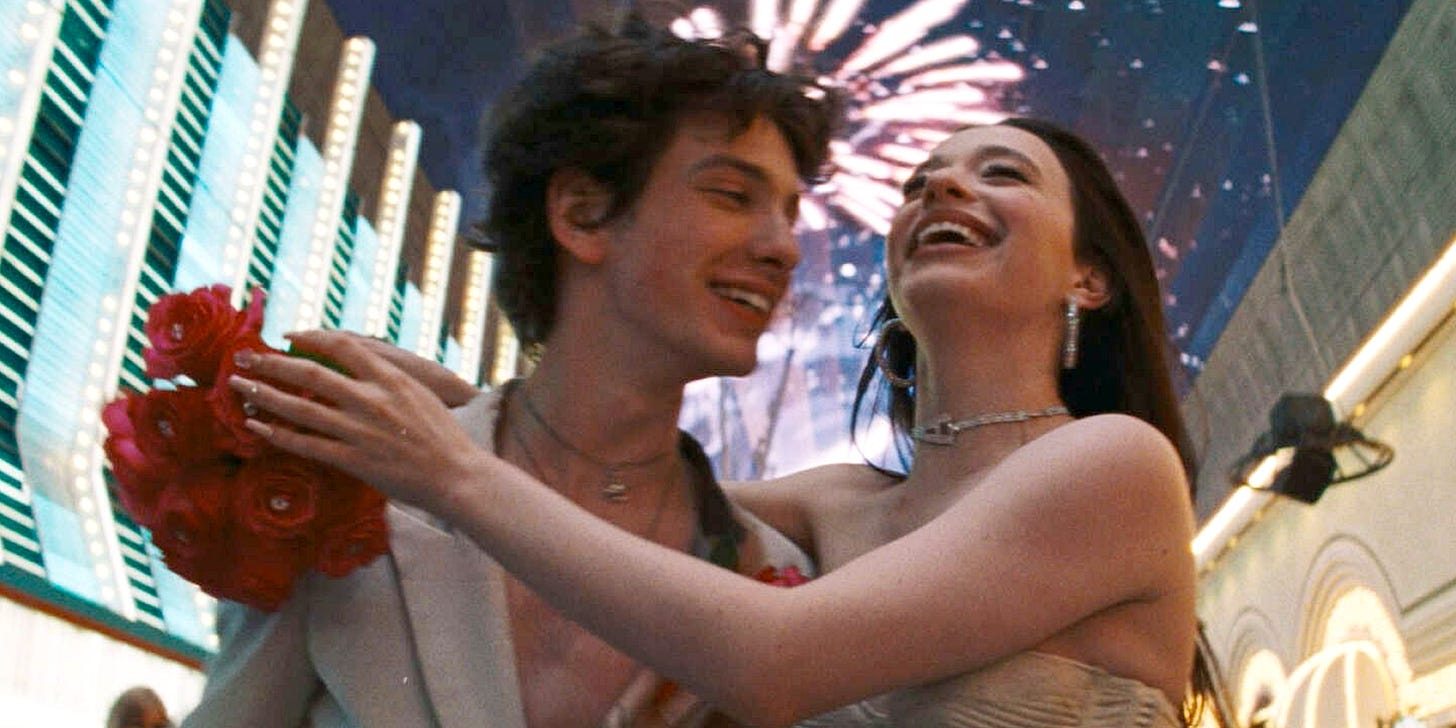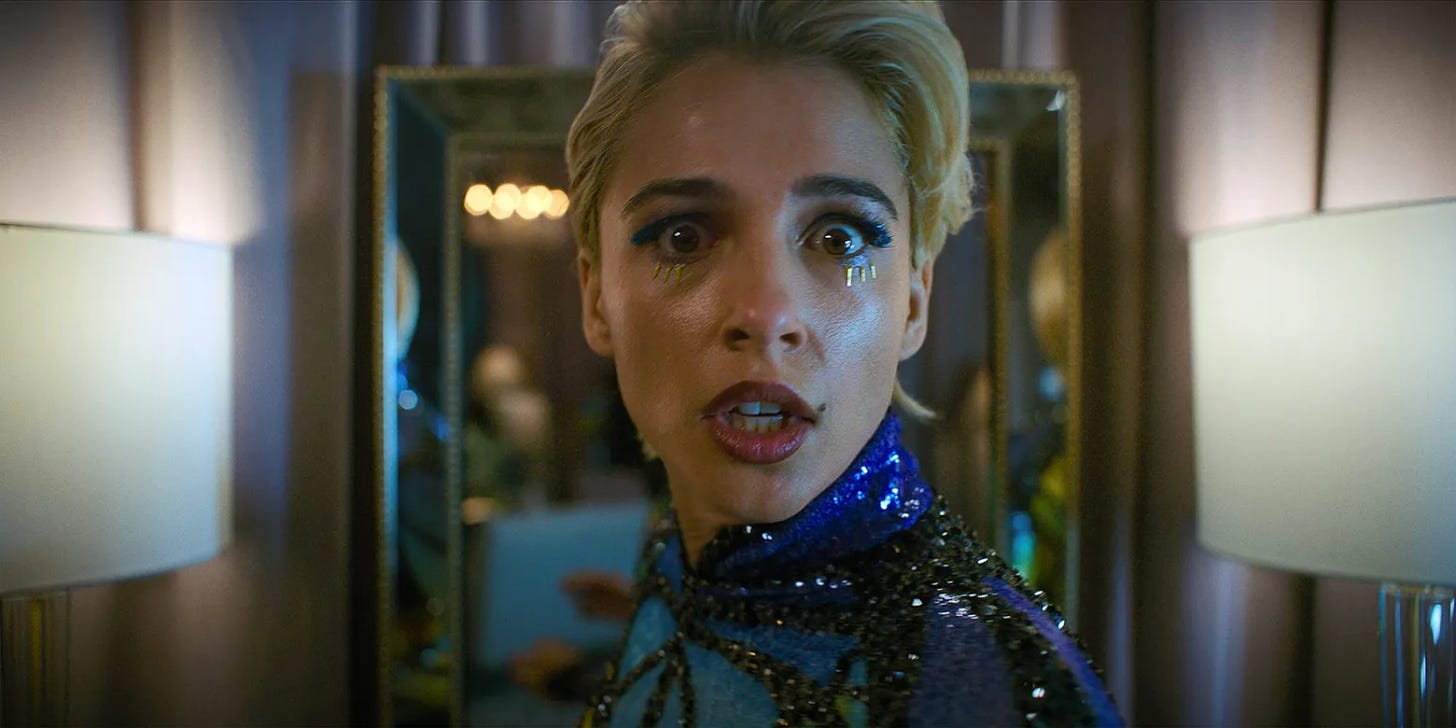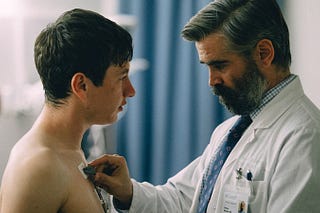
In Review: 'Anora,' 'Smile 2'
Sean Baker's Palme D'Or winner will put a smile on your face. A middling horror sequel will keep it there.
Anora
Dir. Sean Baker
139 min.
In a 1962 interview with director Jean-Luc Godard in Cahiers du Cinéma, the magazine that once published his criticism, Godard said of his transition into filmmaking, “Today I still consider myself a critic, and in a way I am even more so than before. Instead of writing criticism, I make a film, even if it means introducing the critical dimension into it.” Over the years, that quote has been massaged a bit, often by Roger Ebert, into something like “the only way to criticize a movie is to make another movie,” but the gist of it is useful in thinking about Sean Baker’s uproarious and devastating new comedy Anora, which seems like the product of someone who absolutely detests the Julia Roberts-Richard Gere rom-com Pretty Woman. Or at least the product of someone who finds the premise irresistible but rolls their eyes at the execution.
One consistent theme in Baker’s previous films like Starlet, Tangerine, The Florida Project, and Red Rocket is his interest in sex workers, whose disorderly lives double as a source of screwball comedy and class commentary. He loves to explore the gap between the by-the-hour fantasies they offer in strip clubs, hotel rooms, and porn videos and the punch-clock reality of being just another laborer scraping together rent and hoping never to need the health insurance they don’t have. He’s also exceptionally candid about what sex work entails, which is certainly too-hot-for-Touchstone, but provides a crucial window into a transaction that’s simultaneously intimate and impersonal. To frame the relationship between a sex worker and a client as a Cinderella story is a tantalizing idea, but Baker isn’t the sort to minimize the yawning chasm of money and power between the two parties, or to make the Roberts type seem oddly chaste.
Though its irrepressible comic spirit has both the chaotic energy of Tangerine and the shaggy-dog quality of Red Rocket, Anora feels equally indebted to the magic of an Ernst Lubitsch film or the melancholy that underscores a classic like Billy Wilder’s The Apartment. There are many more swear words and lap dances in Baker’s film, granted, but it nonetheless feels like part of a continuum of Hollywood comedy, resolutely old-fashioned yet forward-thinking at the same time. It also has an electric lead performance by Mikey Madison as Ani, a diminutive spitfire from Brighton Beach whose grandparents are of Russian descent, so she can speak the language. This comes in handy when Vanya (Mark Eydelshteyn), a hard-partying son of a Russian oligarch, requests her services at a strip club and the two hit it off. Before long, Vanya becomes the Richard Gere character, peeling off enough money to secure Ani for a week and then some, and the two hit it off famously.
When Vanya and Ani take their rolling party to Vegas, however, they do what many drunken, impulsive lovers do in that city and get hitched, and that’s where their trouble begin. Vanya’s parents obviously disapprove, but they’re so wealthy that they can afford minders in the state to clean up whatever messes their troublesome boy makes. To go any further in describing what happens in Anora would be to spoil twists that the trailer disguises expertly, but suffice to say, Ani has to fight quite literally for her marriage and her verbal and physical ferociousness catches everyone off guard. (That Madison herself is so small makes her outsized personality all the more surprising and delightful, like watching Spud Webb dunk a basketball.)
Though Baker never makes Ani naive per se, he does imagine her as the type of person who could be led to trust her feelings for a guy like Vanya, even if his money and lifestyle are a fantasy that she embraces as readily as a lonely client who thinks a stripper is really into him. Like everyone else entering a long-term relationship, she has to believe that what they feel for each other is real and worth overcoming any obstacle that might be placed in their path. As Anora unfolds, Baker displays an acute awareness of class that figures into Ani’s perception of the world, from the immigrants who clean up after one of Vanya’s parties to the minders, like the taciturn Igor (Yura Borisov) who have their own kind of shit work to do in this system. Maybe a Cinderella story is possible in such a relentlessly transactional world, but it won’t be as easy as Prince Charming pulling up in a limo to rescue his street-walking princess from a third-floor walk-up. — Scott Tobias
Anora opens tonight in limited release.
Smile 2
Dir. Parker Finn
127 min.
Like the antagonist of Ringu (or The Ring, if you prefer), the monster at the heart of Parker Finn’s 2022 film Smile is scary in part because there seems to be no way to defeat it. Like the most malevolent chain letter ever written, it gets passed from one victim who breaks into an unnerving grin then kills themselves to the unfortunate witness to their predecessors’ suicide. The possession lasts about a week, during which the smile demon (or whatever it is) messes with the mind of whoever it’s taken over. What does it want? Mostly, it would seem, just to fuck around and scare its victim until death seems preferable. How can it be defeated? Who knows?
Finn’s feature debut, Smile borrowed heavily (but tastefully) from Ringu, It Follows and other horror films in which a dread-soaked atmosphere provides much of the tension while adding the jolts and gore mainstream horror fans have come to expect. For Smile 2, Finn doesn’t stray too far from what worked before, apart from the sequel’s setting and commitment to narrative logic. Both help set it apart from its predecessor, one making it more compelling and the other more frustrating.
First the compelling part: After an audacious and violent opening tying up a loose end from the first movie, Smile 2 shifts to the rarefied world of Skye Riley (Naomi Scott), a pop superstar making her first cautious steps toward a comeback a year after a car accident killed her movie star boyfriend and sent her to rehab. (That she does so via an appearance on The Drew Barrymore Show feels like a nod to yet another horror landmark.) Still in pain and unable to procure anything but over-the-counter painkillers, she seeks out Lewis (Lukas Gage), an old friend with a ready supply of drugs. This turns out to be a mistake in more ways than one. Beyond jeopardizing her recovery, she risks exposure to, well, if you’ve seen the first movie you know.
At times playing like a cross between Repulsion and Taylor Swift: The Eras Tour, Smile 2 emphasizes the loneliness and anxiety that define Riley’s apparently luxurious existence. Fans—some nice, some creepy—are inescapable. Her mom / manager (Rosemarie DeWitt) seems to be just as (and maybe more) concerned with keeping an upcoming tour on track as making sure her daughter stays healthy. Her past behavior has isolated her from her closest friend Gemma (Dylan Gelula). She hurts all the time. In some ways, the supernatural threat is just another problem to add to the pile.
At the center of virtually every scene, Scott delivers an intense, haunted performance to match the film’s hallucinatory set pieces. It’s when the hallucinations start to overwhelm everything else that the film begins to feel unsatisfying. At some point, the visions within nightmares within visions start to pile up so many layers of reality and unreality that even Philip K. Dick might find it confusing. More troublingly, the shifts start to feel like a cheat, as if Smile 2’s story was simply bending in whatever direction it needs to go to reach the next shock—then twisting into a pretzel to serve a final scene that largely abandons any investment in Riley as a character for the sake of a grim punchline. Like the demon itself, it’s had enough and is ready to move on to the next victim. —Keith Phipps
Smile 2 opens in theaters tonight.




















*ANORA SPOILER ALERT*
Great review. I think my favorite thing about "Anora" was the way it pulls the rug out from under you at the end – you think you've been watching a screwball comedy this whole time when it was actually a tragedy, just everyday exploitation by the rich. That last scene is the most devastating thing I've seen this year.
Finally saw ANORA and walked out even more impressed than I expected and I'm a Baker fan. This is a perfect review of it. The commentary on Pretty Woman, the Baker way of examining our current moment without sending mouthpiece characters in to tell you the point, his mix of 70s realism and screwball comedy. I never knew what angle this movie was going to come from all the way through the end. I find I subconsciously sidearm Cannes successes. Or at least give them a big "yeah, we'll see." I had less of that going in just because of past Bakers. I maybe like this even more just because it isn't one of those all-hype movie we tend to get out of the festivals. Thanks, as always, for your peerless analysis.